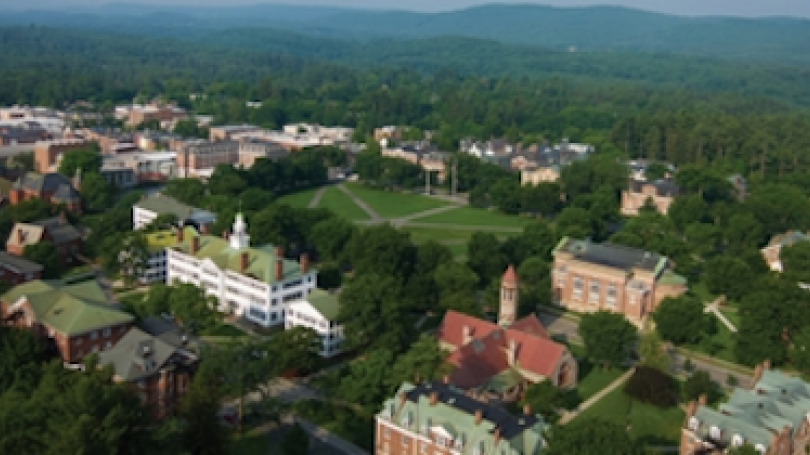
Menu
- Undergraduate
- Foreign Study
- Resources & Opportunities
- Alumni
- News & Events
- People
Back to Top Nav
Back to Top Nav
Back to Top Nav
Back to Top Nav
Back to Top Nav
Welcome to the Russian (RUSS) Department!
The study of Russian offers you a passport to the culture of the world’s largest country. Russia covers 11 time zones. Its vast forests are sometimes called “the lungs of Europe and Asia” as they oxygenate Eurasia. Lake Baikal, which contains 20% of the Earth’s fresh water, attracts tourists, scientists, and students alike (among them a number from Dartmouth). Siberia, southern Russia, and the Russian far north contain vast untapped natural resources. Representing the letter ‘R’ among the so-called BRIC nations, Russia has become a global economic player and remains a major military power. Even after the Cold War, Russia presents an ideological and geopolitical challenge to Western liberal democracies.
The Russian language gives you access to one of the world’s richest artistic traditions including Russia’s phenomenal literary tradition (with its realist masters, Tolstoy and Dostoevsky); its unique visual arts, from religious icons to Kandinsky’s Suprematism; its innovative music from Chaikovsky to Stravinsky, and its ground-breaking cinema by major directors from Eisenstein to Tarkovsky. Knowledge of Russian and Russian culture will open doors to careers in government, journalism, national and cyber security, the military, and energy.
Since Russian 1 is offered only in the fall term, interested students should start taking the language in the fall of their first year. Three one-term courses (Russian 1, 2, 3) provide basic fluency in the elements of the Russian language. Russian 3 satisfies the College language requirement and is the prerequisite for participation in the Department’s LSA+ in St. Petersburg. It also qualifies students for Russian 27 and 28, which serve as gateway courses for many of the department’s more advanced language courses. Four years of the language are offered, as are many courses in literature and linguistics. Those students who wish to major have two options: a major in language and literature, with an emphasis on one or the other; or a major in area studies, with courses about Russia taken in both the Russian Department and other Dartmouth departments, such as History, Government, Geography, and Economics. Most of the literature courses are taught in English, with the Russian majors doing extra work that draws upon their knowledge of the language. Most majors participate in the department’s summer LSA+ at the University of St. Petersburg, but the program is open to all Dartmouth students with one year of Russian.
The following courses are recommended for first-year students:
F=Fall, S= Spring, W=Winter
ADVANCED PLACEMENT
Graduation credit is not granted for secondary school courses in Russian, but students with secondary school Russian should take the Russian Department’s local placement exam (*). Students who demonstrate sufficient knowledge will thereby satisfy the language requirement and be eligible for Russian 27; students whose knowledge is substantially greater will receive credit on entrance for Russian 27 and be eligible for Russian 28 or higher-level courses.
TRANSFER CREDIT
Students who wish to receive credit for college Russian courses taken prior to matriculation at Dartmouth should see the Chair of the Department of Russian early in the fall term.
SELECTED FALL TERM COURSES (RUSS)
1. First-Year Course in Russian
An introduction to Russian as a spoken and written language.
13. Slavic Folklore: Vampires, Witches and Firebirds
In this course, we will discuss a variety of genres from Russian folklore. As we move from the familiar genre of the riddle to the often mystifying beliefs and rituals of the ancient Slavs and then to the fairy tale, comfortingly familiar from childhood, we will learn to not only recognize the richness and density of texts that may initially seem uncomplicated but also to discern the patterns and meanings behind the apparently exotic narratives and behaviors. By thoroughly studying one of the world’s richest oral traditions, Slavic folk life and folklore, we will acquire the tools and techniques necessary for collecting, documenting, and interpreting folklore -- which is perhaps the most truly international of all arts. The course is based on materials in Russian and East European cultures, but also draws from other traditions. Open to all classes. Dist: INT or LIT; WCult: W.